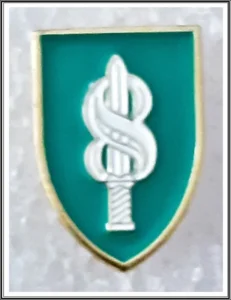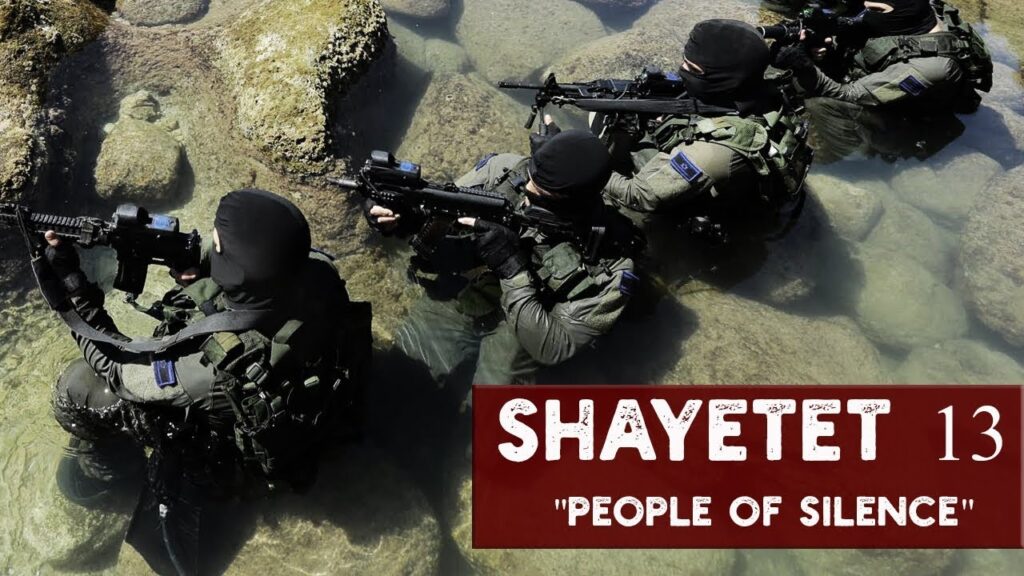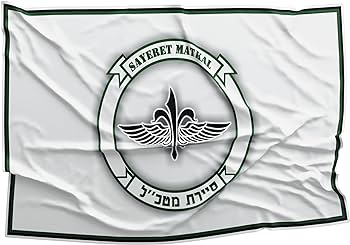|
Getting your Trinity Audio player ready...
|
By: Fern Sidman
REFAIM
In the dynamic landscape of modern warfare, the Israel Defense Forces (IDF) have adapted by creating Refaim, a groundbreaking multi-dimensional elite unit. The name “Refaim,” translated to ghosts, embodies the elusive and versatile nature of this elite force. Comprising soldiers from various branches, including the air force, armored corps, intelligence, telecommunications, cyber, and reconnaissance, Refaim brings together the best of Israel’s military prowess. Notably, it recruits elite soldiers from special forces units such as Maglan, Yahalom, and Duvdevan.

Established in February 2020, Refaim was conceptualized to be a self-reliant and independent force capable of detecting and exposing targets efficiently. What sets Refaim apart is its unique composition, integrating soldiers from diverse branches and elite units, creating a cohesive, organic unit with a shared language, commander, and overarching goal.
Beyond its operational objectives, Refaim serves as a catalyst for fundamental change within the IDF. Recognizing the evolving nature of the battlefield, Israel understands the imperative for change. Refaim isn’t merely a highly advanced unit; it stands as a model for the IDF’s combat, command, and operational structure.
As a testing ground for new technologies and tactics, Refaim plays a pivotal role in disseminating its findings and conclusions throughout the IDF. The unit’s insights have already influenced various branches, including infantry, Airforce, Armor, Navy, Artillery, and Special Forces units. Through constant training and military exercises, Refaim not only maintains its capabilities but also tests new technologies and methods that advance the entire IDF’s combat structure.
Refaim operates in all battle arenas, employing a fusion of infantry, engineering, anti-tank warfare, air, and intelligence capabilities. This unique amalgamation positions Refaim as a Special Operations Force capable of detecting, attacking, and destroying the enemy across theaters of operation and domains.
To become a member of Refaim, soldiers undergo a meticulous selection process based on physical, mental, and overall characteristics. Given the intense blend of battle and technology, candidates are tested for creativity and problem-solving skills, alongside traditional special forces selection processes. The comprehensive 14–16 month combat training involves enduring extreme physical and mental challenges, with successful participants potentially receiving additional training in medical, sniper operations, and undisclosed courses.
The unit’s symbolic emblem, a Sword built into the number eight with arrows nested in different directions, reflects its commitment to versatility and precision. However, tragedy struck on October 7, 2023, during the Battle of Re’im, when unit commander Roi Levi lost his life in a confrontation with Hamas. The loss of a key figure underscores the risks and sacrifices inherent in Refaim’s high-stakes operations.
DUVDEVAN
Within the intricate tapestry of the Israeli Defense Forces (IDF), Duvdevan stands as a shining example of elite counter-terrorism expertise. Established in 1987 against the backdrop of the first Palestinian uprising, this Special Forces (SF) group has evolved into the most esteemed Counter-Terrorist (CT) unit in Israel. Operating primarily undercover in urban Palestinian areas, Duvdevan specializes in infiltration, arrests, and capturing wanted terrorists, deploying a unique blend of disguises, linguistic proficiency, and behavioral acumen acquired through rigorous training.

Duvdevan’s modus operandi is marked by its distinctive approach to undercover operations in urban environments. Often donning civilian attire, its operators seamlessly integrate into the local Arab populace, navigating complex landscapes to achieve their objectives. The unit’s notoriety extends beyond the realm of human intelligence, as Duvdevan is recognized for its exceptional proficiency in both human and mechanical counter-surveillance.
Unit 217, as Duvdevan is also known, undertakes a myriad of high-risk and classified operations. These include targeted killings of terrorists and a spectrum of undercover missions in Arab regions. The secrecy surrounding their operations underscores the sensitivity and complexity of the tasks they undertake in the name of national security.
To fully appreciate Duvdevan’s significance, it is essential to comprehend its place within the basic structure of the IDF. The IDF comprises the navy, air force, and police, all falling under the command of the army. Duvdevan operates as a specialized unit within this framework, showcasing the multifaceted nature of Israel’s military. The navy, air force, and police each have their own elite units—S-13, 669, and YAMAM, respectively. In the army, alongside Duvdevan, there are adjunct units such as MATKAL, focusing on intelligence gathering, international hostage rescue, and long-range reconnaissance akin to the renowned Delta Force.
The genesis of Duvdevan can be traced back to the turbulent times of 1987 when the first Palestinian uprising, known as the Intifada, erupted. Faced with thousands of heavily armed terrorists enjoying widespread support, the IDF found itself constrained by the limitations of a compromised public relations image on the global stage. A full-scale military retaliation was deemed impractical, leading to the formation of Duvdevan as a response to the emerging wave of terrorism in the New Territories.
Duvdevan, as the vanguard of Israel’s counter-terrorism efforts, embodies the nation’s commitment to security in the face of evolving threats. Operating within the complex fabric of the IDF, this elite unit showcases unparalleled expertise in undercover operations, illustrating the fusion of skill, discretion, and adaptability. As a key player in safeguarding Israel’s interests, Duvdevan’s history and operational capabilities exemplify the nation’s resilience and strategic foresight in navigating the challenging landscape of modern warfare.
UNIT 669
Israel Defense Forces (IDF) Unit 669, a heliborne combat search and rescue extraction unit, has carved a niche as a premier force within the Israeli military. Subordinate to the Israeli Air Force’s 7 Wing, it operates as the Israeli equivalent to the Pararescue of the US Air Force. Established in 1974 by Yoram Shachar and Avner Ilnai, Unit 669 has played a crucial role in various conflicts, including the aftermath of the 1973 Yom Kippur War, and more recently, in the 2023 Israel–Hamas war.

The unit is strategically based at Tel Nof Airbase, utilizing CH-53D Sea Stallion Yas’ur helicopters, and at Palmachim Airbase, where UH-60 Black Hawk Yanshuf helicopters are deployed. These heliborne capabilities grant Unit 669 the agility and versatility required for rapid and effective combat search and rescue missions.
Unit 669’s inception was prompted by the lessons learned from the 1973 Yom Kippur War, where an ad hoc medevac unit performed around 5000 extractions. Initially mandated to extract and provide initial medical treatment to downed pilots beyond enemy lines, the unit’s role expanded over the years. It became involved in the extraction of soldiers from various arms of the IDF, notably supporting Sayeret (Special Forces) fighters in operations beyond enemy lines and aiding distressed seamen.
According to the Israeli Air Force, Unit 669 played a vital role in the 2023 Israel–Hamas war, showcasing its ongoing commitment to national security and its ability to adapt to contemporary conflicts.
Given the potential need to navigate hostile environments, Unit 669 soldiers undergo rigorous training in both special forces tactics and advanced medical procedures. The 18-month training and selection process is renowned as one of the most physically and psychologically demanding in the IDF. Key components of the training include basic training with the IDF Paratroopers, special operations combat training, advanced land warfare, counter-terrorism courses, scuba diving, rappelling, high angle rescue, advanced helicopter tactics, and parachuting.
Upon completing their arduous training, Unit 669 soldiers commit to an additional 18 months of service, extending beyond the standard three-year mandatory term. The cost of training per individual is estimated at 1 million Israeli new shekel, underscoring the significant investment in developing and maintaining this elite force.
SHALDAG
In the heart of the Israeli Air Force (IAF) lies Unit 5101, better known as Shaldag—a Tier 1 commando unit widely recognized as one of the most elite forces within the Israel Defense Forces (IDF). Shaldag’s primary mission is to execute undetected operations in combat and hostile environments, specializing in special reconnaissance, assault zone establishment, airfield creation, air traffic control, and commando actions. The unit plays a pivotal role in facilitating the IAF’s precision strikes, with members speaking the language of the air force and transmitting precise target coordinates to fighter jets and attack helicopters.
Shaldag’s inception is rooted in the lessons learned from the 1973 Yom Kippur War, where the IDF realized the need for a specialized force capable of deep penetration into enemy territory to strike critical targets. Created as a response to this strategic gap, Shaldag evolved to become a key asset in the IDF’s arsenal. The unit’s dual role also includes hunting down and targeting enemy surface-to-air missile batteries, further enhancing the IAF’s ground capabilities.
Throughout its history, Shaldag has undergone significant evolution, eventually falling under the direct command of the IAF in 1986. It became an integral part of the IAF’s special airborne forces, embodying characteristics of flexibility, readiness, and total availability for missions. Shaldag was purposefully designed to adapt to the ever-changing demands of warfare.
Shrouded in secrecy, the majority of Shaldag’s operations are classified, hidden behind a tight veil of official secrecy. The achievements of the unit are numerous and dramatic, contributing significantly to Israel’s military endeavors over the past 40 years. From playing crucial roles in various conflicts to carrying out some of Israel’s most dangerous and high-risk missions, Shaldag has remained an indispensable asset for the IDF.
Shaldag operators undergo the longest training phase of any unit in the IDF, lasting an intensive 22 months. The training regimen places a heavy emphasis on navigation, with exercises designed to provide extensive experience and enhance physical endurance through long forced marches carrying heavy weights. Specialized training includes a parachuting course at the IDF’s parachuting school, counter-terrorism at the IDF’s LOTAR counter-terrorism school, air-to-ground cooperation, airborne operations training, as well as specialized reconnaissance and communications training.
The concluding phase of Shaldag’s training is a testament to the unit’s commitment to resilience and readiness. Soldiers undergo a course in enduring enemy captivity, experiencing a surprise mock kidnapping and enduring simulated prison-like conditions, interrogation, physical violence, and humiliation.
Shaldag has played a major role in almost all of Israel’s wars and conflicts since its establishment. In 2007, the unit gained international attention for its reported involvement in Operation Orchard—the destruction of a Syrian nuclear reactor. Shaldag reportedly infiltrated an underground depot near the suspected site, designating the target for incoming Israeli fighters that successfully destroyed it.
SHAYETET 13
Shayetet 13, a marine and naval commando unit under the Israeli Navy, stands as one of the most elite and secretive forces within the Israel Defense Forces (IDF). Operating on land, in the air, and in the sea, Shayetet 13 is renowned for its specialized training that goes beyond regular combat, encompassing marine warfare, diving, and the operation of special vessels. The unit plays a crucial role in conducting sabotage, hostage rescue, and counterterrorism operations, many of which remain classified, contributing significantly to Israel’s national security.

Shayetet 13 specializes in sea-to-land incursions, counter-terrorism, sabotage, maritime intelligence gathering, maritime hostage rescue, and boarding. Its versatile capabilities encompass sea, air, and land actions, making it an integral component of Israel’s military strategy. The unit’s motto, “As the bat emerges from the darkness, As the blade cuts through with silence, As the grenade smashes in rage,” reflects its commitment to precision, stealth, and effectiveness.
Considered one of the top special forces units globally, Shayetet 13 has often been likened to the United States Navy SEALs and Britain’s Special Boat Service. The unit’s exceptional training, operational success, and commitment to excellence have solidified its reputation as among the world’s best special forces.
Despite the secrecy surrounding its operations, thousands of Israelis apply for Shayetet 13 each year, with fewer than 40 individuals selected. The unit is divided into three specialized company-sized units, including the primary raid unit, an underwater unit, and an above-water unit specializing in surface attacks and sea transportation. Recruits undergo a grueling 20-month training course, known as one of the toughest in the IDF, encompassing diverse aspects such as special reconnaissance, direct-action missions, underwater attacks, hydrographic reconnaissance, and navigation.
Members of Shayetet 13 are expected to serve a minimum of 6 1/2 years, a commitment longer than regular enlistments. This extended service period underscores the dedication and expertise required for individuals within the unit. Shayetet 13 has played a significant role in almost all of Israel’s major wars and conflicts since its establishment.
While traditionally women have not served in special forces, Israel has recently opened its special forces training day to women. This initiative allows women to undergo assessments for eligibility for elite teams, potentially leading to roles in units such as 669 fighters or specialization in explosive ordnance disposal under the Yahalom Unit. Shayetet 13, however, remains closed to women for the time being, although this may change based on the success of women in other elite groups.
SAYERET MATKAL
Sayeret Matkal, an elite command unit within the Israel Defense Forces (IDF), stands as a pinnacle of specialized training and covert operations expertise. Established in 1957 by IDF officer Avraham Arnan, the unit has evolved into a highly skilled special operations team entrusted with tasks that demand unparalleled courage and proficiency.

Arising from a need for combat units operating in enemy territory for top-secret intelligence-gathering missions, Sayeret Matkal was founded with a distinct purpose. Over the years, the unit has undertaken numerous hostage rescue operations and counterterrorist missions, earning a reputation for its exceptional capabilities.
Sayeret Matkal gained international acclaim for its role in hostage rescues, particularly the daring Operation Entebbe in 1976. The unit, in collaboration with other IDF units, successfully freed hostages from an Air France plane hijacked by Palestinian terrorists in Uganda. Employing a ruse with a black Mercedes resembling Ugandan leader Idi Amin’s personal car, the operation showcased Sayeret Matkal’s ingenuity and effectiveness. Lieutenant Colonel Yonatan Netanyahu, the rescue force leader, lost his life during the operation.
Primarily a field intelligence-gathering unit, Sayeret Matkal engages in deep reconnaissance behind enemy lines, obtaining strategic intelligence critical to Israel’s security. The unit is extensively involved in covert operations, including black operations, combat search and rescue, counterterrorism, hostage rescue, human intelligence (humint), irregular warfare, long-range p
 enetration, manhunts, special operations, and special reconnaissance. Modeled after the British Army’s Special Air Service (SAS), Sayeret Matkal adopts the SAS motto, “Who Dares Wins,” reflecting the daring nature of its missions.
enetration, manhunts, special operations, and special reconnaissance. Modeled after the British Army’s Special Air Service (SAS), Sayeret Matkal adopts the SAS motto, “Who Dares Wins,” reflecting the daring nature of its missions.
Despite its top-secret nature, Sayeret Matkal has significantly influenced the IDF’s operational strategies. The unit pioneered helicopter infiltration techniques in Israel, showcasing its commitment to innovation. Additionally, Sayeret Matkal played a key role in the development of an Uzi variant with a folding stock for increased accuracy while maintaining a compact design. The unit received an honorable mention for its activities during Operation Protective Edge in 2015, highlighting its ongoing contributions to Israel’s defense.
In a groundbreaking move, the IDF announced a pilot program in September 2023, allowing women to join Sayeret Matkal for the first time, commencing in November 2024. This initiative reflects the evolving dynamics within the IDF and the recognition of the potential contributions of women to elite units.
The 2023 Israel–Hamas war saw Sayeret Matkal actively engaged, reportedly losing at least 11 soldiers. The unit was preparing to liberate hostages captured by Hamas, underscoring its continued commitment to securing the nation even in the face of adversity.
The roots of this top-secret special unit trace back to its establishment, an era when the mere acknowledgment of its existence was unthinkable. Throughout its initial years, the unit operated in complete secrecy, and the details of its operations and capabilities were hidden from public knowledge. The revelation of its existence in the 1980s marked a turning point, allowing limited insights into its covert activities.
The unit’s fighters and commanders were handpicked with meticulous care, relying on personal acquaintances and referrals. This method ensured that only individuals with the utmost dedication, skills, and discretion became part of this elite force. From the 1970s onwards, the unit gradually opened its doors to voluntary recruits, ushering in a new era of carefully selected candidates.
Twice a year, the unit conducts a notorious selection camp known as “Gibbush,” a grueling test lasting several sleepless days. Potential recruits are subjected to constant monitoring by doctors and psychologists, assessing their physical and mental resilience under extreme conditions. The selection process, known for its difficulty, became a benchmark for other IDF special forces, including the renowned Sayeret units during the 1990s.
To be considered for service in the unit, candidates must meet stringent criteria, including a medical profile of 97 with no disqualifying clauses, a quality category (“kaba”) of 52 or more, and an initial psychotechnic grading (“dapar”) of 50 or more. Those who pass this initial screening enter a two-year training program that encompasses a wide array of skills critical for survival and success behind enemy lines.
The recruits undergo an exhaustive training regimen that covers camouflage, combat and patrolling techniques in urban areas, bomb and landmine disposal, fast tactical shooting, survival skills in desert and mountainous terrains, martial arts, navigation, reconnaissance tactics, small unit tactics, tactical driving, emergency medical procedures, tracking tactics, unconventional raid strategies, and proficiency in small arms and light weapons.
A pivotal component of the training is the Beret March, a demanding 120–150-kilometer (75–93 mi) journey undertaken in the final four days. Completing this arduous march is a rite of passage for recruits, earning them the coveted red beret that symbolizes their readiness for the challenges that lie ahead.
Sayeret Matkal stands as a testament to Israel’s commitment to maintaining a highly trained and elite special operations unit capable of undertaking the most challenging and critical missions. Its storied history, technological contributions, and ongoing relevance in modern conflicts showcase the unit’s integral role in ensuring Israel’s security and defending against emerging threats. Sayeret Matkal remains a symbol of courage, precision, and unwavering dedication to the defense of the Israeli nation.



